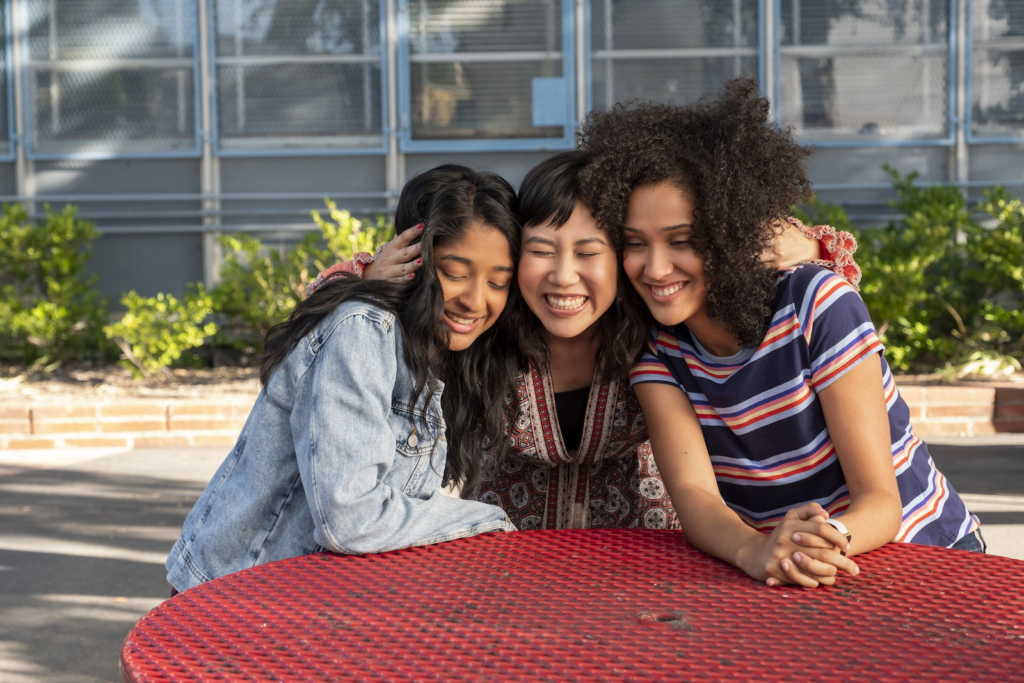With a 98 percent rating on Rotten Tomatoes, 8.1/10 on IMDB and an impressive 4.8/5 stars on Google Reviews with over 6000 ratings, the Netflix show “Never Have I Ever,” released on April 27, seemed to have everything going for it.
The show stars a young Indian-American girl, Devi Vishwakumar, who struggles to navigate high school life following the tragic death of her father that sent her into a state of partial paralysis. Now physically recovered, Devi sets about winning over her crush, the popular boy Paxton Yoshida-Hall.
As an Indian-American, I was hoping to see a normal teenager like me navigating life with the occasional “cultural” twist that displays the extra experiences that only the child of an immigrant feels. Instead, what I found was a show filled with internalized stereotypes and forced references to Indian culture inserted in such an extreme manner that they actually reaffirmed viewers’ false assumptions in the shallow attempt to debunk them.
A plain storyline meant that the show could only be outstanding with strong characters and compelling dialogue, both of which fell severely short. Devi is overdramatic, self-centered and frankly (for the lack of a better word) cringey. Like many other token Asian-American characters thrown into TV shows and movies for diversity, she is portrayed as some sort of eccentric alter-species, purposely exaggerated as “different” due to her ethnicity. Compared to other characters, Devi is abrupt, asking people of abnormal things like when she approached her crush and asked him to have sex with her even though they had never spoken.
Throughout the show, Devi shows no character growth. Despite having multiple opportunities to be a better friend, she rejects them time and again for her own gain. For example, in an instance where her best friend’s mother has abandoned her, Devi chooses to visit Paxton rather than going to help her desperate friend.
Her static character is clearly a deliberate choice by the writers to keep her socially awkward and “different,” as they go through the effort to set up perfect opportunities for her to flat out ignore.
In an attempt to incorporate aspects of Indian culture, the show haphazardly throws around random collections of relatable content Tamil words, a festival, an arranged marriage and even the possibility of Devi’s family moving back to India out of the blue. It fails to mention that Devi’s family is South Indian — key information considering the drastic differences between parts of India — or explain the nuances of Indian culture within these roots, which in reality should severely impact her experiences of the world.
Even something as simple as Devi’s use of “Periyappa” to reference her uncle is something that only Tamilians would understand, since different parts of India call their uncles by different names. For example, as a Gujarati-Tamilian mix, I would call my uncle “Mama” in Gujurati, and “Periyappa” in Tamil. This seems like a small detail, but it alludes to a large cultural difference within India.
Rather than addressing little-known aspects of Indian culture like the aforementioned fact, however, the show chooses to tackle arranged marriage, an overdone and greatly stereotyped process. The portrayal of arranged marriage in the show is exaggerated in a manner that borderline mocks Indian culture, showing arranged marriage as a cornerstone of it. Rather than actually debunking myths, the bit serves as a laughing piece as she accepts the arranged marriage solely because the groom is “hot.”
Despite seeing her study only once throughout the 10 episodes, Devi is portrayed as the top of her class and a strong contender for the Ivy Leagues. Rather than her academic accomplishments as a consequence of her hard work, the show implies that her Indian roots are what make her smart, as if being Indian immediately makes a person academically gifted.
On top of this, the show stereotypes the traditional Indian mom by emphasizing academic achievement in moments where it is utterly irrelevant. For example, upon catching Devi breaking her rules with Paxton, Devi’s mother immediately turns to insulting him: “Oh, I’m sorry. Is he an honors student? I had no idea. My apologies, Paxton.”
One shining light in the show is Devi’s mother, played by Poorna Jagannathan. She reminds me of my own mother and many other Indian mothers that I have seen, and her surprising honesty, perseverance and strength are typical of any good mother.
The main issue with this show is its overcommitment to making its Indian-American main character seem different from the “regular” American. In reality, any teenager living in America is going to have very similar struggles and desires. At the end of the day, culture influences lifestyle, but not to the extent where people from different cultures are living in an alternative world.
The show falls apart at this notion. Rather than showing that Devi is just a normal teenager, it pushes her into a new category. She is constantly portrayed as an outsider, who is constantly struggling with her Indianism, a minority who needs to change herself or hide aspects of her culture to fit in with the majority. This is where the problem lies — there is not one scene in the whole show where Devi accepts or appreciates being from India, because she sees it as a trait to be ashamed of.
In many of the reviews that I read for this show, people expressed shock at being able to relate to her as a non-Indian. They were surprised, they said, that even they could relate to this show. But this shouldn’t be so shocking. Indian-American teenagers should not be seen as a different breed of people. We are just teenagers trying to balance our Indian identity with our American one.
Desperation to see representation in the media should not be the key factor in deciding whether a show is good or not. The show’s falsely positive reviews may lie with its diverse focus. But if this is what South Asian representation looks like on TV, I will tune out.



























